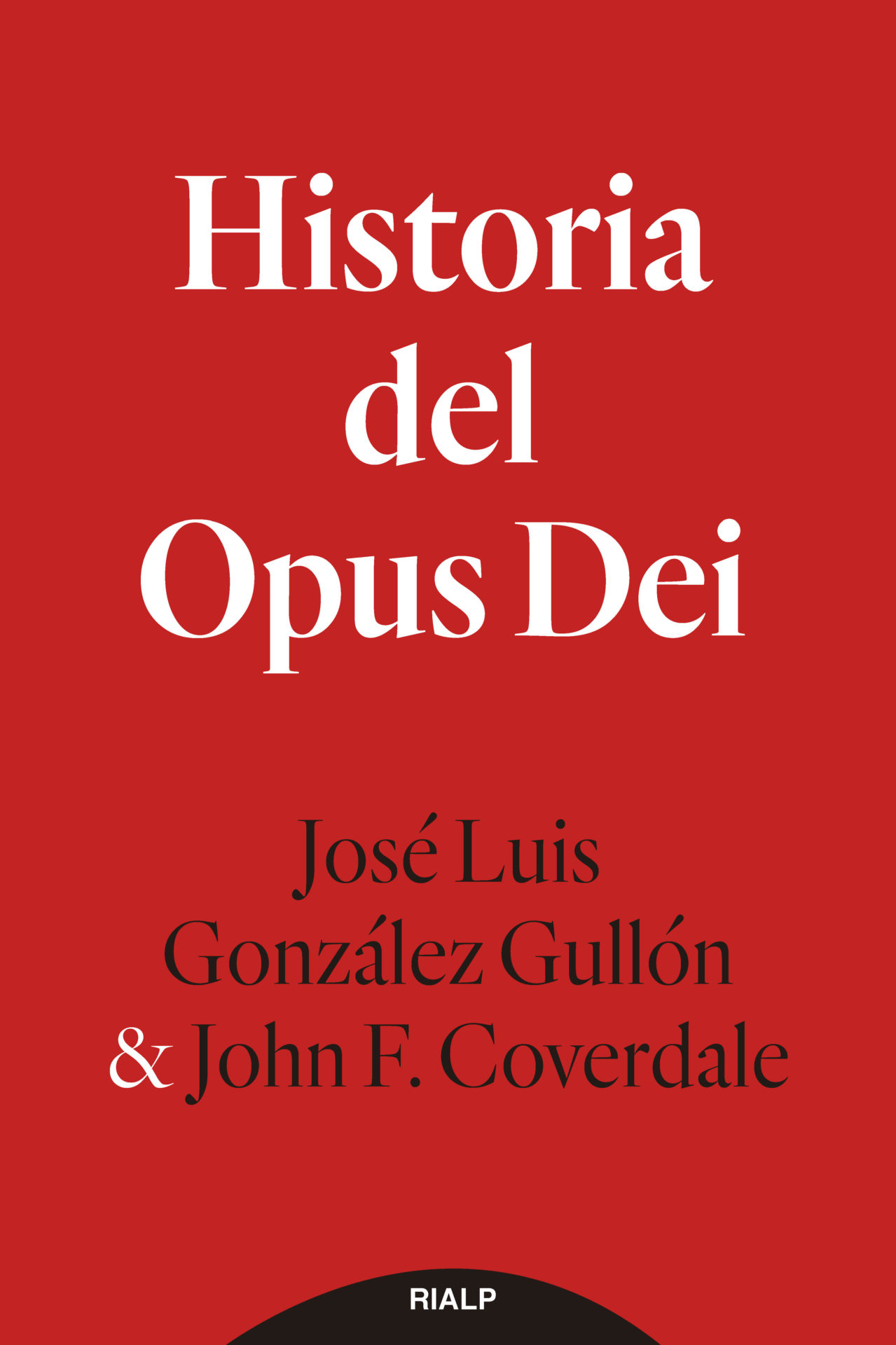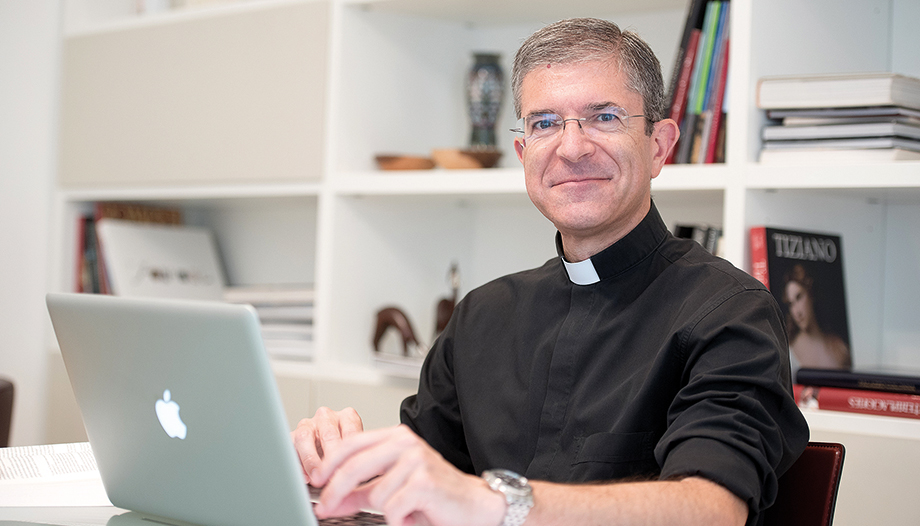 Bishop Ocáriz: "Contact with poverty, with pain, helps to relativize problems".
Bishop Ocáriz: "Contact with poverty, with pain, helps to relativize problems". Javier Echevarría's strong, discreet leadership
Javier Echevarría's strong, discreet leadershipThe Opus Deifounded by saint Josemaría Escrivá in 1928, is heading towards its centenary. It is a young institution, but with sufficient scope and scope to study its history with a panoramic vision. This is what the historians José Luis González Gullón and John F. Coverdale, authors of History of Opus Dei.
The book analyzes the expansion of Opus Dei's message in the Church and in society through the institution and the people who belong to it or its apostolates: in its 700 pages, the authors narrate the genesis and development of Opus Dei, its legal path, the spread of its spirituality and the evolution of its apostolic initiatives, under the guidance of the founder and his first two successors, Álvaro del Portillo and Javier Echevarría.
-How did the idea of writing a general history of Opus Dei come about?
The idea of tackling such a project germinated when I was preparing some classes I gave in 2016 at the Pontifical University of the Holy Cross. Then, I was joined by John F. Coverdale, with whom I have been doing research for the past five years. I remember that at first we were faced with a forest that was almost impenetrable because of the amount of data, people and activities that were there. Gradually, we were able to establish the chronology and themes. The historiography on other Church institutions served as a model for this work.
-Who is the target audience for the book?
There are perhaps three types of people who may be interested in a synthesis of the major events of Opus Dei from its foundation to the present day. On the one hand, the academic community will have at its disposal a study with a historical method that offers keys to understanding the development of an institution of the Church within broader contexts.
On the other hand, the faithful and cooperators of the Prelature will learn more about the most important milestones that have shaped the institution throughout its history, both the positive ones and those that went wrong; in this sense, we are excited to think of the new generation of young people of the Work, to whom we explain their origin. And thirdly, members of other institutions will discover the continuities and discontinuities in the ways of being Catholic and spreading the values of the Gospel.
The faithful and cooperators of the Prelature will learn more about the most important milestones that have shaped the institution throughout its history, both the positive ones and those that went wrong.
José Luis González GullónAuthor of History of Opus Dei
-Was it difficult to bring together two historians from different cultures and continents?
I think it has been very enriching to have the collaboration of John F. Coverdale, a scholar with extensive experience in writing the history of Europe and the United States in the twentieth century. His work has shortened the time required for the documentary research and the writing of the manuscript. But, above all, it has served to incorporate different and, at times, disparate points of view.
-Have you been able to consult all the documentation you wanted?
The hidden value of this book is the sources. Our narrative is based on the materials consulted in the archives of the Prelature of Opus Dei, where the manuscripts of the founder are preserved, along with other materials. We thank the current prelate, Msgr. Fernando Ocáriz, because he gave his approval to all our requests for archival sources. At the same time, we hope that, in a short time, this documentation will be accessible to the scientific community.
-What is the originality of the book?
I believe that this is the first overview of this institution as it approaches its centenary. In narrating the history of Opus Dei, we tell the identity of its members, with its successes and its limitations over time.
Also new is the proposal for a chronology and study of the last five decades, a field that no one has yet ventured into. And, from a more conceptual point of view, as the years go by-especially after the death of the founder-we propose four elements that help to understand the current development of Opus Dei: the government, structure and institutional relations; the transmission of Christian doctrine in the headquarters of the Work; corporate activity; and individual action in society.
But the real novelty has been the message of Opus Dei itself. The mission of incarnating and transmitting to each person that God calls him or her to be a saint, to identify with Jesus Christ through work and other social relationships, beats at the heart of the spirit of the Work. The thousands of men and women who follow the Founder, who was recognized as a saint by the Church twenty years ago, have dedicated themselves and continue to dedicate themselves to this goal. The central objective of our research work was to recount the irradiation of this message over time.
We propose four elements that help to understand the current development of Opus Dei: the government, structure and institutional relations; the transmission of Christian doctrine in the headquarters of the Work; corporate activity; and individual action in society.
José Luis González GullónAuthor of History of Opus Dei
-Is it an institutional story?
The institutional component of Opus Dei occupies a large part of our research. We offer, for example, demographic and statistical data, forms of government that have been adopted and the development of corporate activities.
At the same time, Opus Dei is a Christian message that proclaims the call to holiness in the midst of the world, something that each member does at his or her own pace in the professional and family environment in which he or she finds himself or herself. The life of most of these people is neither institutional nor does it take place in "institutional spaces". In the broad panorama of human relationships, one friend discovers to another the greatness and joy of knowing that he is a child of God and a brother to others. This is how Opus Dei is spread and, therefore, this is how it is understood.
When we made the index of names, it struck me that the book is less institutional than it may seem: we mentioned 662 different people. In this sense, the 26 photographs we publish are a small sample of the men and women who have come into contact with the message of Opus Dei over the years.
-Do they seem to take sufficiently into account the role of women in this story?
Opus Dei is composed of men and women, with common and peculiar characteristics. While in the first thirty years there were more men than women, in the following fifty years this trajectory was reversed, to the point that today 59% of the members of the Work are women. We have tried to reflect this reality in our book. In this sense, in addition to working with archival sources of both men and women, we have conducted two hundred interviews with both men and women in equal numbers; then, some historians read the book and made suggestions to show the positive evolution in the leadership, equality and complementarity of women in society, in the Church and in Opus Dei.
-Is it a hagiographic book?
We have tried to tell the story as it was, showing the most relevant facts, both successes and failures. For example, we include encounters and disagreements with other people and institutions, the controversies that arose around the founder's beatification process, and the accusations of alleged elitism or secrecy. It seems to us that all this contributes to the normalization of studies on Opus Dei.
John F. Coverdale and I belong to the Work, and the book certainly reflects our self-understanding of the evolution of an institution to which we have dedicated our lives and which is our family. At the same time, we strive to be rigorous in our use of historical methodology. I think that, just as a Catholic historian can rigorously analyze the Church or a Salesian historian the Society of Francis de Sales, so we can employ our research efforts in the study of Opus Dei.
The book












